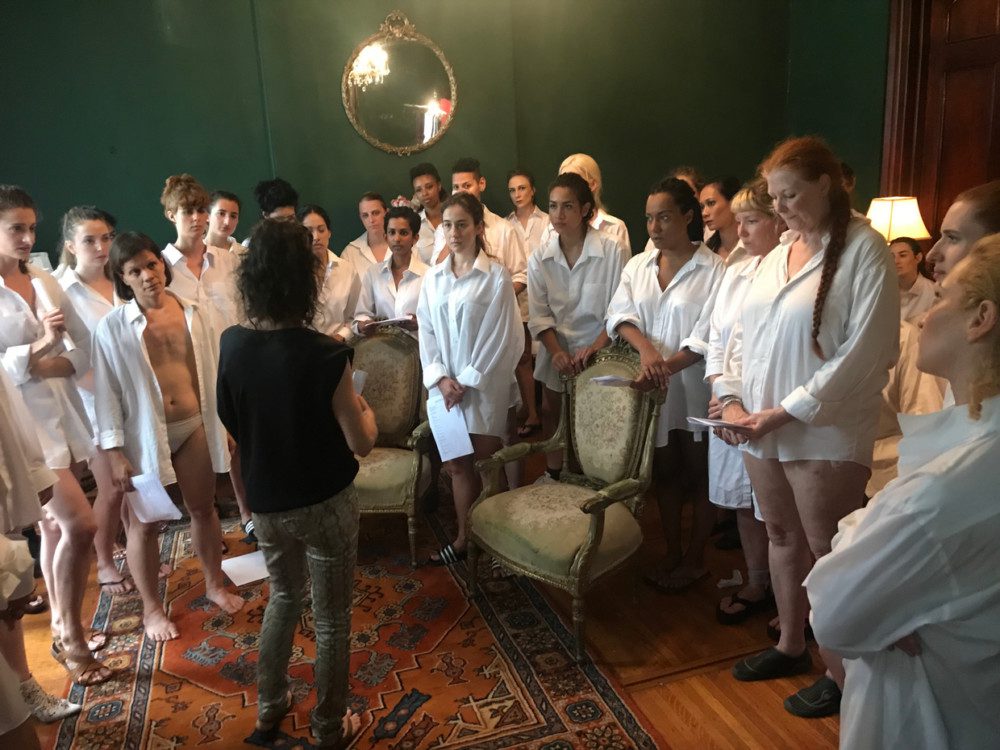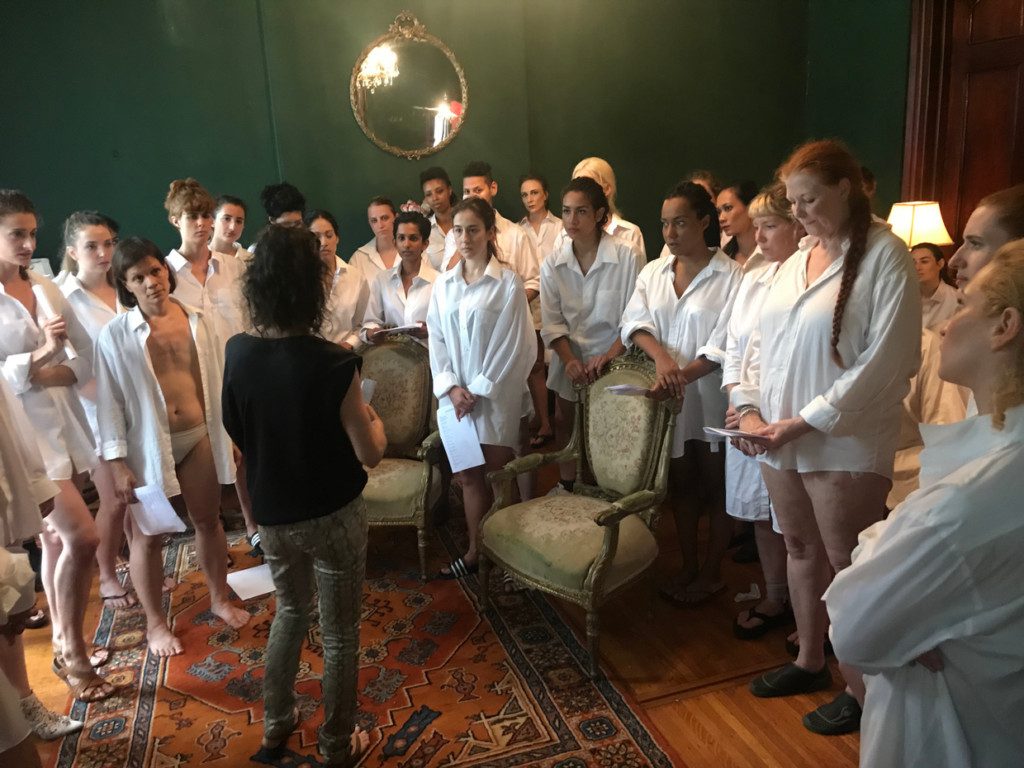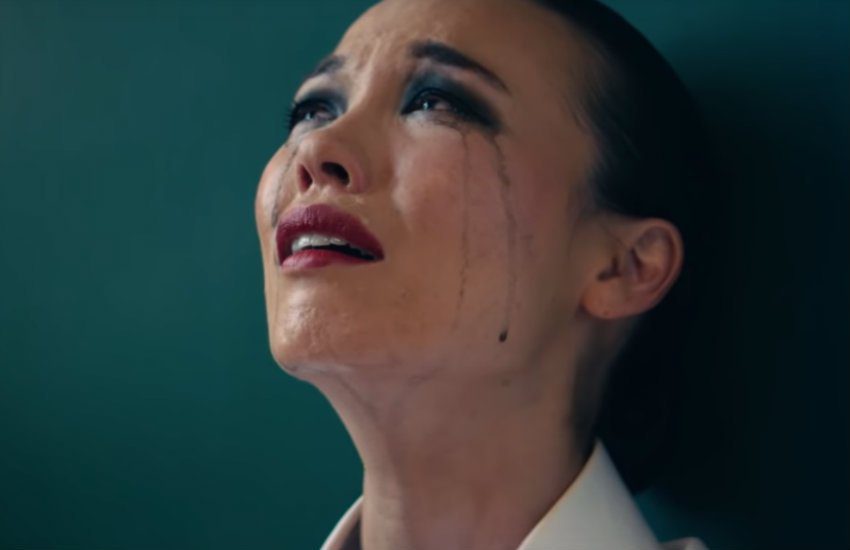INTERVIEW: Amanda Palmer on Making Art in the Era of #MeToo


Exactly one year to the day of the New York Times article that exposed Harvey Weinstein as a serial sexual predator, Amanda Palmer and Jasmine Power released a video that cements the importance of the #MeToo movement. Though its lyrics make no specific reference to the disgraced Hollywood mogul, the song is called “Mr. Weinstein Will See You Now” and was written shortly after the news of Weinstein’s transgressions became a media frenzy.
In a blog post, Palmer details the making of the video, the significance of choreographer Noémie Lafrance’s vivid work, and the genesis of the entire project, which was crowd-funded via Patreon. But in a separate interview with AudioFemme, she illuminates these ideas further. “We all know the basics: rape is bad, sexual assault is bad. But there is such a broad spectrum of power play within these private arenas,” she explains. The #MeToo movement has shown that sexual assault and harassment is an all too universal experience for many women, and the day Power and Palmer were set to enter the studio together, Palmer says her mind was caught on the idea that so many of these incidents had happened in hotel rooms. “I met Jasmine only a few days before we went to the studio, and I had been reading the news that morning, not about Harvey Weinstein, but about Stormy Daniels,” she remembers. “That made me think not just about the hotel rooms as this strange infinite karmic space, but the fact that these moments always happen behind closed doors in these cellular private spaces where women and men are alone.”
That made the setting for the video an obvious choice. But Palmer didn’t want the short film to focus on her – instead, she wanted to make it about women globally and the internal dialogue we may all be simultaneously working through. She says she wanted to capture “how frustrating it is to be that woman, stuck in that room with a man who wields all the power, and this psychic battle that you have to do in your own head, and the exhaustion of having to negotiate [with] an insistent, annoying man… weighing your options, looking for the escape, wondering what the path of least resistance is, wondering if the path of least resistance really is your best option, questioning your own motivation, questioning how you will be perceived. Not being able to actually find your inner voice, because the voices outside of you are screaming at you so loudly.” To that end, Palmer and Power take a more supportive role in the video itself, standing among a throng of women solemnly repeating the song’s lyrics.
Palmer tells AudioFemme this was a very deliberate decision. “When I thought about what the video needed to be I had a short list of things, which is that it couldn’t be centered around me and it needed to include a ton of women, of different ages, shapes, sizes and colors to reflect the fact that this is a totally universal global experience,” explains Palmer. “And choreography felt correct because of the viscerally painful nature of the subject.” In choosing to bring to the story to life with a chorus of women, Palmer shows the magnitude of the issues they were seeking to address, while each woman’s nuanced movements and expressions reveal that no one experience encompasses the reality of sexual assault – each woman is involved in her own internal battle. Part of what makes “Mr. Weinstein Will See You Now” so powerful is that Palmer doesn’t dive into her anger towards men like Weinstein, Cosby, Kavanaugh and Trump, but instead investigates her own curiosity of the female psyche.

“That is one of the things I hope the song gets at, because it’s a lot easier to write a song about what is black and white, and what is bad,” Palmer says. “It’s a lot harder to write a song, and make a video for that matter, about the internal tumult that women have to face in so many interactions.” As songwriters, Power and Palmer know that making art about weighty subjects is often the best way to process them, show solidarity, and offer a visceral, but not exploitative, experience to those who have attempted to remain willfully ignorant about these issues. “I think we just have to rip out the pages and write an entirely new book about empowerment,” Palmer says.
While the media has relied on the black and white experience of assault and rape, artists like Palmer and Powers are opening up to a wider conversation of grey nuances. “Mr. Weinstein Will See You Now” opens a dialogue where these nuances to come to life, and ends on an empowering note; the chorus of women stand shoulder-to-shoulder, repeating the words “You forget that I’m the one writing this.” This powerful scene re-imagines the common media narrative that paints survivors as voiceless victims, giving them the potential to re-write their own stories. This, Palmer says, is the whole point. “Art has opened incredibly important doors that have lead to progress,” she says. “I think this is the time for artists of all genders to stand up and start addressing more of this stuff. Art making and storytelling right now is so critical because everything else is so fucking confusing.”





